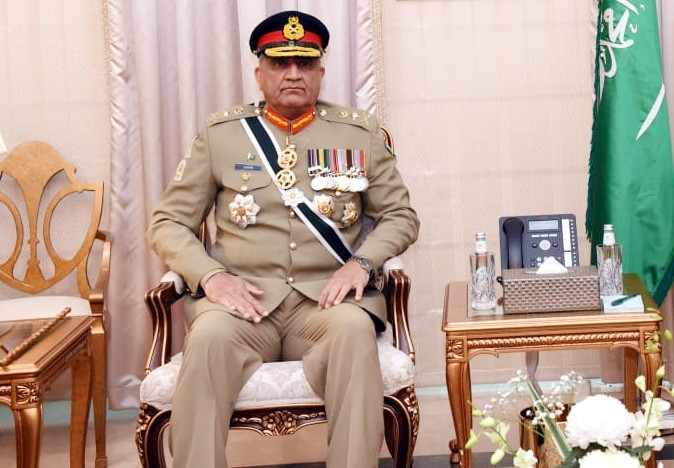After Pakistani Prime Minister Imran Khan’s offer for dialogue with India yesterday, Pakistani army chief General Qamar Javed Bajwa said today that a better stable relation between both the countries is vital to ‘unlocking’ the potential of South and Central Asia by ‘ensuring’ connectivity between the east and West Asia. He said that Pakistan is ready to resolve outstanding issues with neighbours.
Bajwa's remarks confirm that Pakistan's entire power establishment–the civilian and military–are behind fostering a new beginning with India. The break from the spiral of hostility and negativity began last month after India and Pakistan revived their 2003 agreement to stop firing across the Line of Control (LoC), the de facto border between the two countries.
According to the Pakistani media, General Bajwa aired his weighty remarks during a seminar organised by the Islamabad based think tank Islamabad Security Dialogue. The Pakistani army chief said that there is immense potential in Central and South Asia but which has remained hostage to the disputes, distrusts and the issues between the two “nuclear neighbours.”
"We have learned from the past and are willing to move ahead towards a new future. However, this is contingent on reciprocity," Bajwa observed.
"The Kashmir issue is obviously at the heart of this. It is important to understand that without the resolution of the Kashmir dispute through peaceful means, the process… will always remain susceptible to derailment to politically motivated bellicosity." Bajwa added, "We feel it is time to bury the past and move forward, and that the onus for meaningful dialogue rests with India. Our neighbour will have to create a conducive environment, particularly in occupied Kashmir."
Interestingly Bajwa’s comments follow Prime Minister Imran Khan's offer on Wednesday of opening Pakistan border to funnel Indian trade with Central Asia. " India will also benefit with more trade and connectivity to Central Asia. This [Kashmir] is the one issue that holds us back. We will try our full efforts but it is for India to make a move. Until they do that, we cannot move forward,” he added.
This is the first time when the most powerful Pakistan’s army chief said publicly on relations with India since India initiated backchannel contacts followed by a meeting between the Director Generals of Military Operations (DGMO) of the two countries to reach an agreement to “revive existing mechanisms of hotline contact and border flag meetings to resolve any unforeseen situation or misunderstanding.”
The army chief said that in this environment, developing countries like Pakistan face multidimensional challenges which cannot be navigated single-handedly, and a similar situation is being faced by other countries in the region.
“History has taught us that the way ahead has always been through an inter-connected, inter-dependent and collective sense of security, therefore, we all require multi-lateral, global and regional approach and cooperation to overcome these challenges." Bajwa said,
Interestingly about a month back General Bajwa had said that Pakistan and India must resolve the Jammu and Kashmir issue in a "dignified and peaceful manner".
The Indian foreign secretary Harsh Shringla said on Monday that the onus was on Pakistan to create a conducive atmosphere for a meaningful dialogue, “India desires good neighbourly relations with Pakistan and is committed to addressing issues, if any, bilaterally and peacefully.”
Analysts point out that with the "atmospherics" right for the revival of a dialogue, the focus will shift to the nitty gritty of talks. In 1994 India's parliament had declared through a resolution that entire Jammu and Kashmir including Pakistan occupied Kashmir (PoK) and Gilgit-Baltistan is an integral part of India. However, the way forward may lie in taking a holistic approach to the relationship, and its fallout on promoting India's interests in the region, including the loosening of Pakistan's strategic bonds with China.
READ MORE: 28 years after Bombay serial blasts, Pakistan-backed Dawood Ibrahim still roams free




















